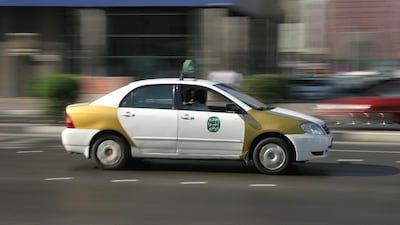For those who have been living in Abu Dhabi for a while, reports of the recent taxi drought and the way household budgets are being squeezed by the rising cost of living may seem like a trip down memory lane.
For the benefit of newcomers, it’s worth recalling that these problems were worse back in 2008 and 2009. But thanks to the peculiar way in which time imbues difficult situations with nostalgic appeal, having lived through that time now feels like a perverse badge of honour.
And for all the current difficulties, life in Abu Dhabi is still much more pleasant than it was back then. At the time, the global financial crisis and Abu Dhabi’s announcement of ambitious construction projects headlined by the developments on Saadiyat, Yas and Reem islands caused the UAE capital’s population to surge beyond capacity.
Hearing new arrivals talk about rent rises higher than the previous five per cent annual cap pales a little against the horror stories doing the rounds in 2008 when housing was in such short supply that property agents would charge hefty – and non-refundable and probably illegal – fees just to see apartments. To delay for a few hours while deciding whether to take a substandard apartment meant that someone else had probably taken it.
And then there was the quality of the housing stock on offer. One friend rented a studio that had been illegally converted from a garage and had a regularly malfunctioning sewage system.
For this, he was charged Dh160,000 a year. Now he lives in a plush apartment with three spacious terraces, in a compound with a pool, and pays Dh95,000 a year.
When it comes to taxis though, the situation now has some similarities to 2008, in the sense that those who do not have cars have to set off long before their intended appointment, not knowing if it will take a minute or an hour to find a cab.
But back then, the taxis were the white and gold variety, with only the first few of the silver ones plying the roads.
Taking these old-style taxis was an experience that might generously be described as characterful, with the ancient Toyota Corollas often demonstrating a frightening lack of mechanical maintenance.
Unlike the well-groomed and English-speaking drivers in today’s silver taxis, the drivers back then were a mixed bag, varying between friendly and excellent to surly and recalcitrant.
What really made the difference then was that taxis were the only form of public transport in Abu Dhabi until the bus service began, late in 2008, which meant that absolutely everybody who sought to go from one side of the capital to the other was vying for the taxis.
The concept of orderly queuing was as unheard of then, as it is now, where someone who had just arrived at the taxi stand would seek to jump into an empty one ahead of someone who had been waiting for an hour.
I felt sorry for the labourers because it was clear that western expatriates were given preference by taxi drivers because they were more likely to tip. When the buses started, the labourers had a way to get across town which was at least reliable and cheap – initially they were free, then the fare was set at Dh1, only increasing to Dh2 recently.
Thinking back to these days, it’s obvious the impressive strides that have been made in upgrading Abu Dhabi from what still had hints of the frontier oil town it had so recently been, to becoming a city worthy of being the UAE’s capital.
Those of us who lived through all this still have empathy for those newer arrivals who feel squeezed by rising costs of living or who wait for an hour to get a taxi, but we know these difficulties are far fewer than before.
Life here is by no means perfect but despite the current difficulties, the capital in general continues to improve as a place to live. This might explain why so many of us from 2008 and 2009 are still here now.
jhenzell@thenational.ae

